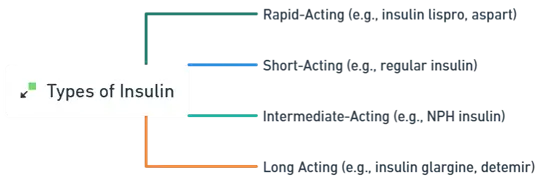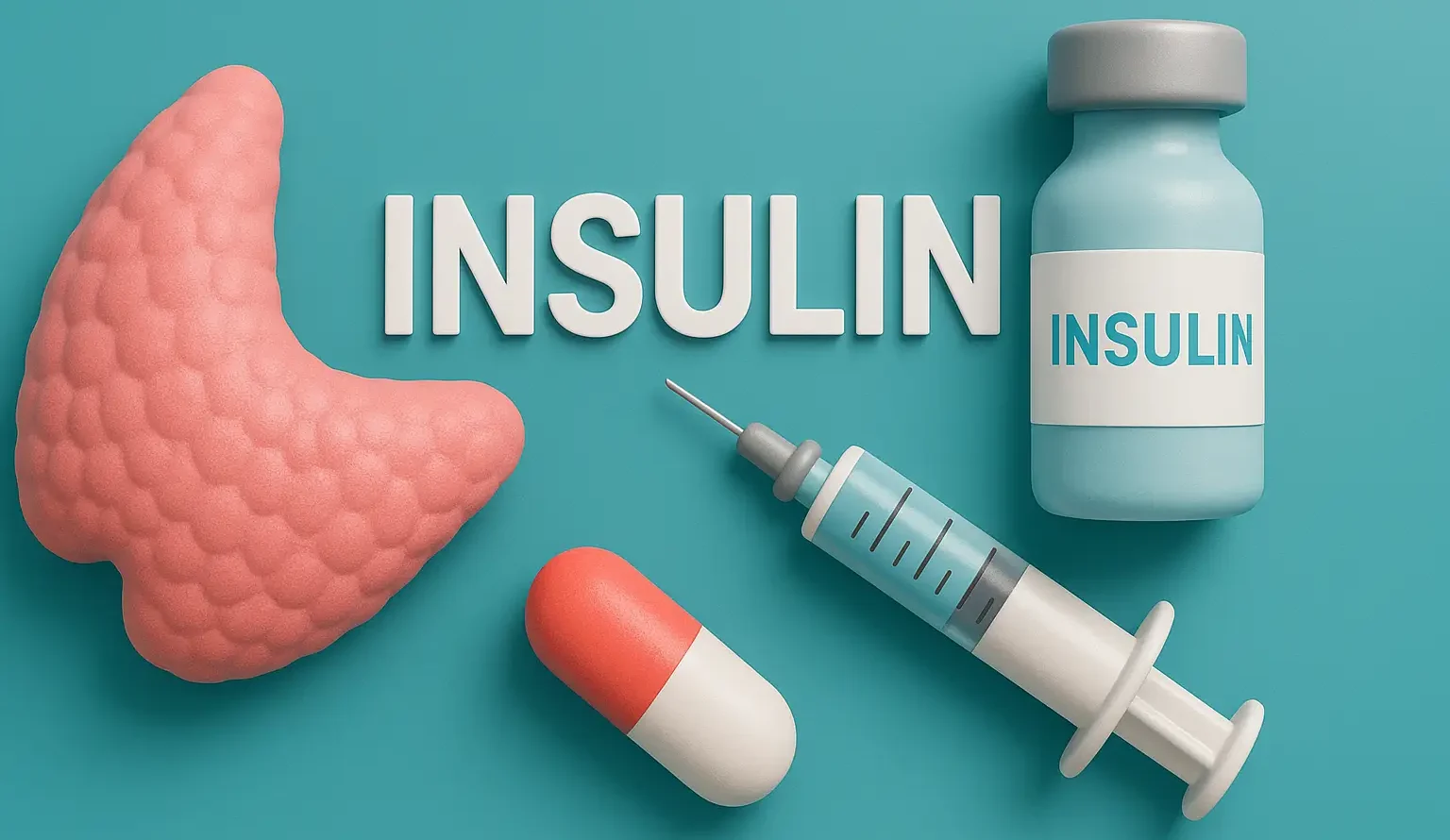Definition of Insulin:
- Insulin therapy is indispensable for type 1 diabetes and may be required in advanced type 2 diabetes.
Physiology:
- Produced by β-cells of the pancreas; released in response to increased blood glucose.
- Lowers blood glucose by facilitating glucose uptake in muscle and adipose tissue and by inhibiting hepatic glucose production.
Advertisements
Types of Insulin:

-
Rapid-Acting (e.g., insulin lispro, aspart):
- Onset: ~15 minutes.
- Peak: 1 hour.
- Duration: 2-4 hours.
-
Short-Acting (e.g., regular insulins):
- Onset: ~30 minutes.
- Peak: 2-3 hours.
- Duration: 3-6 hours.
-
Intermediate-Acting (e.g., NPH):
- Onset: 1-2 hours.
- Peak: 4-12 hours.
- Duration: 12-18 hours.
-
Long-Acting (e.g., glargine, detemir):
- Onset: 1-2 hours.
- Peak: Minimal or none.
- Duration: Up to 24 hours.
Advertisements
Clinical Use:
- Type 1 Diabetes: Basal and bolus insulins regimens.
- Type 2 Diabetes: As insulins resistance progresses, insulins may be added to oral agents.
- Hyperkalemia: Insulins (with glucose) shifts potassium intracellularly.
Side Effects:
- Hypoglycemia, weight gain, lipodystrophy at injection sites.
Advertisements

